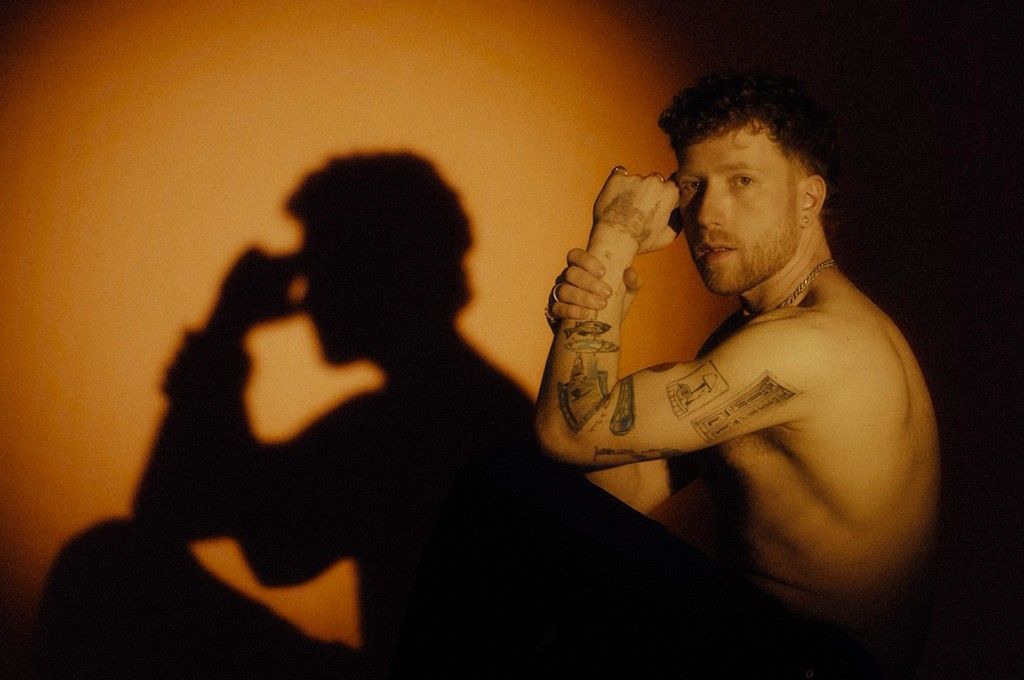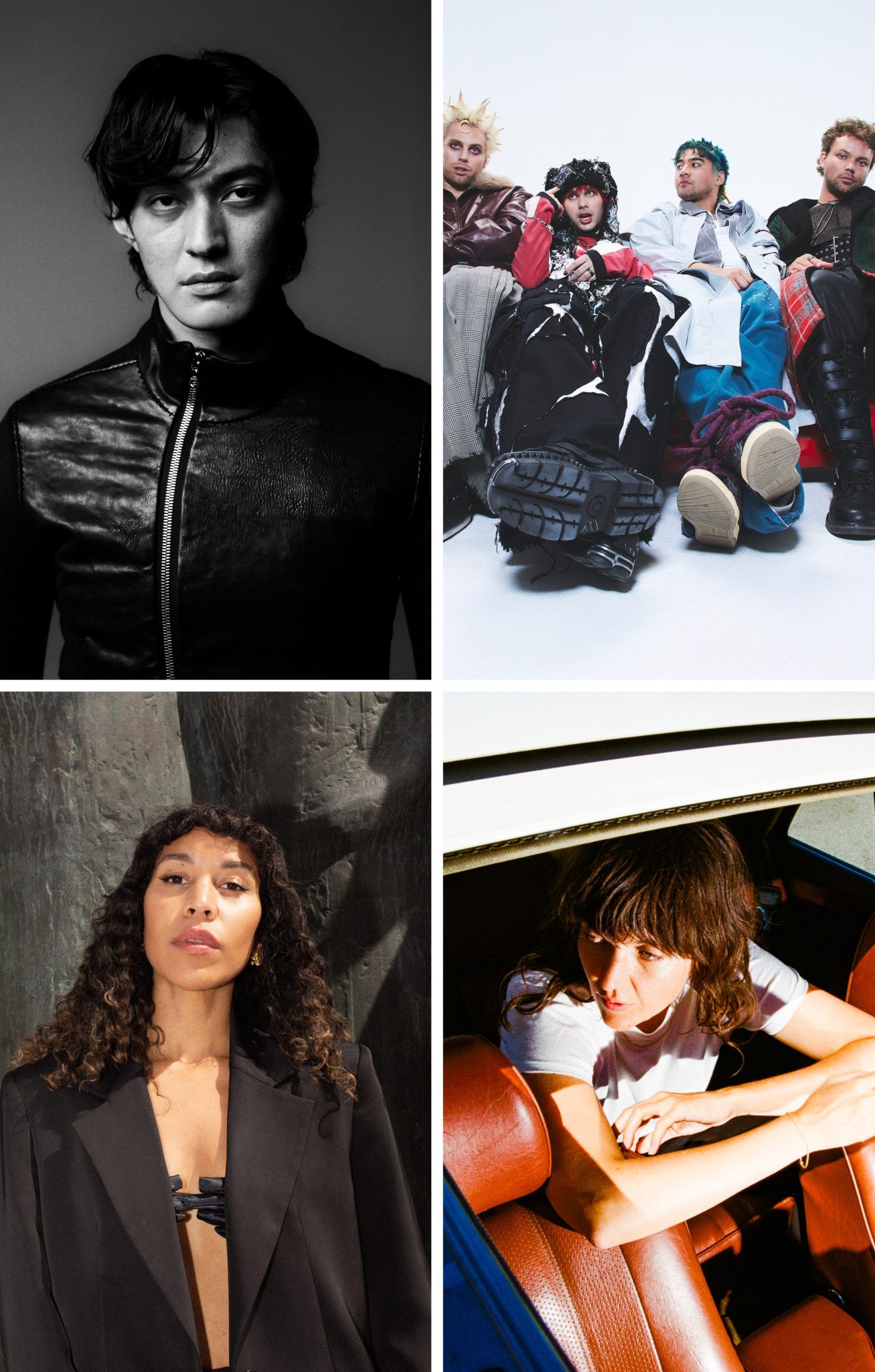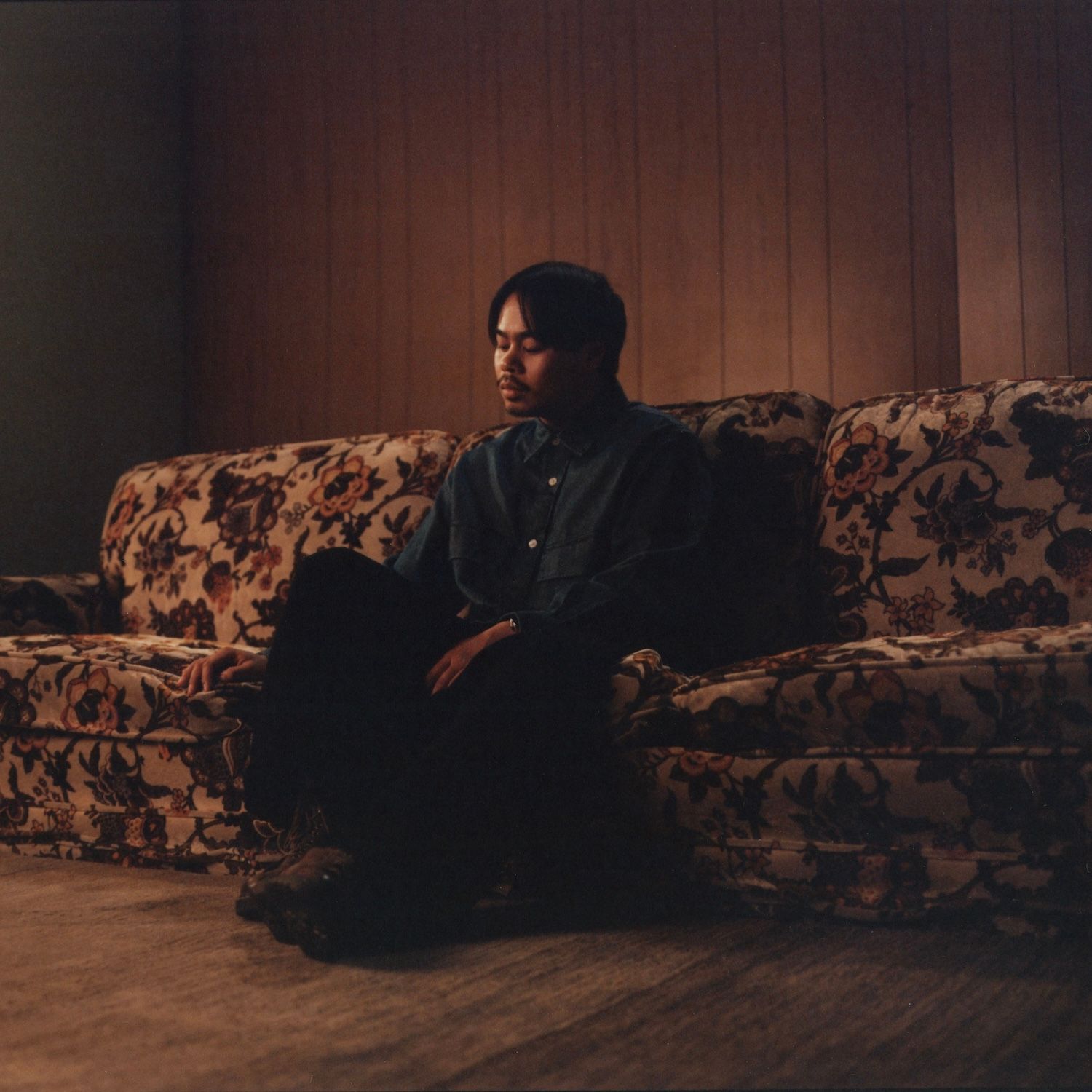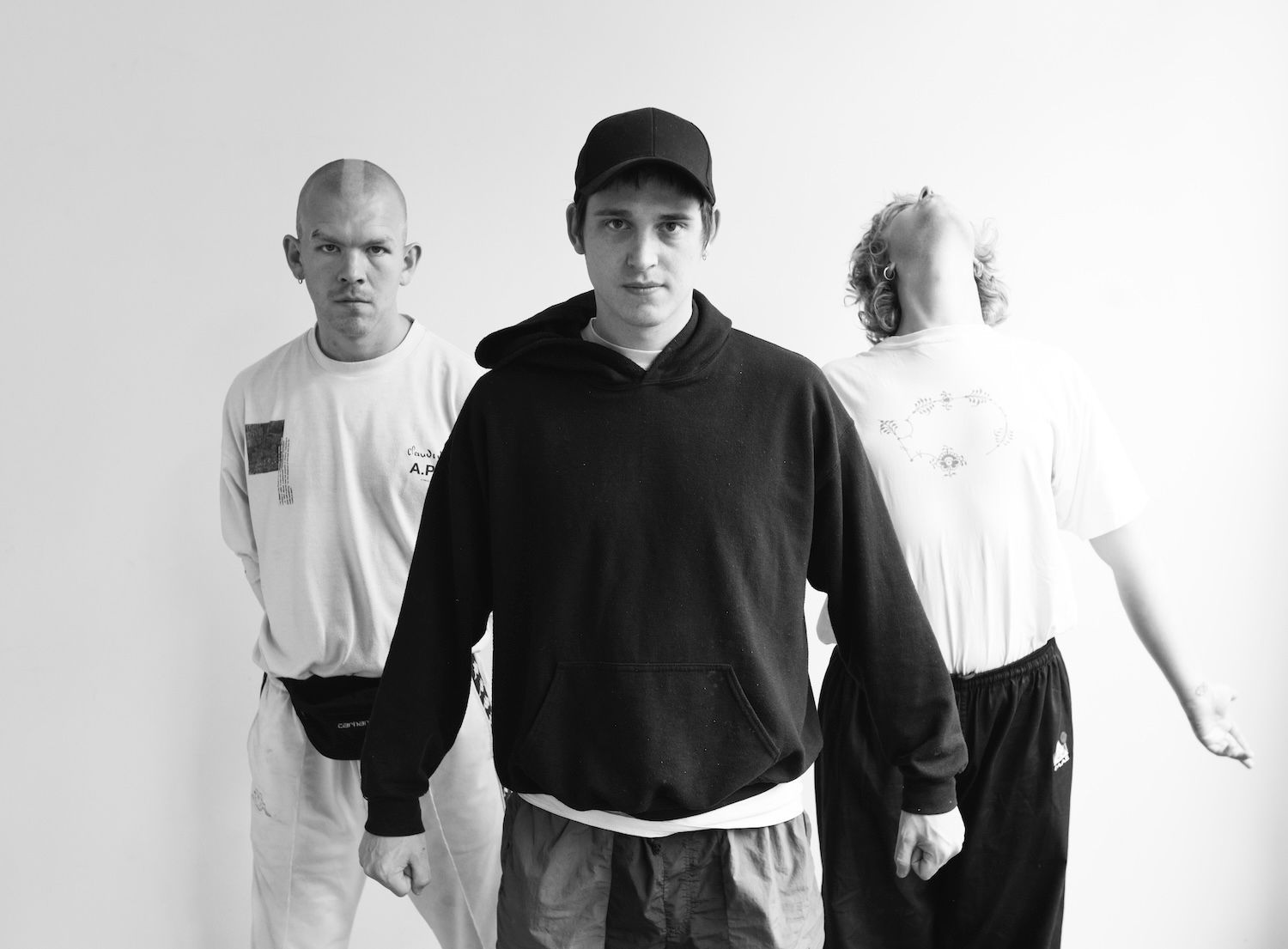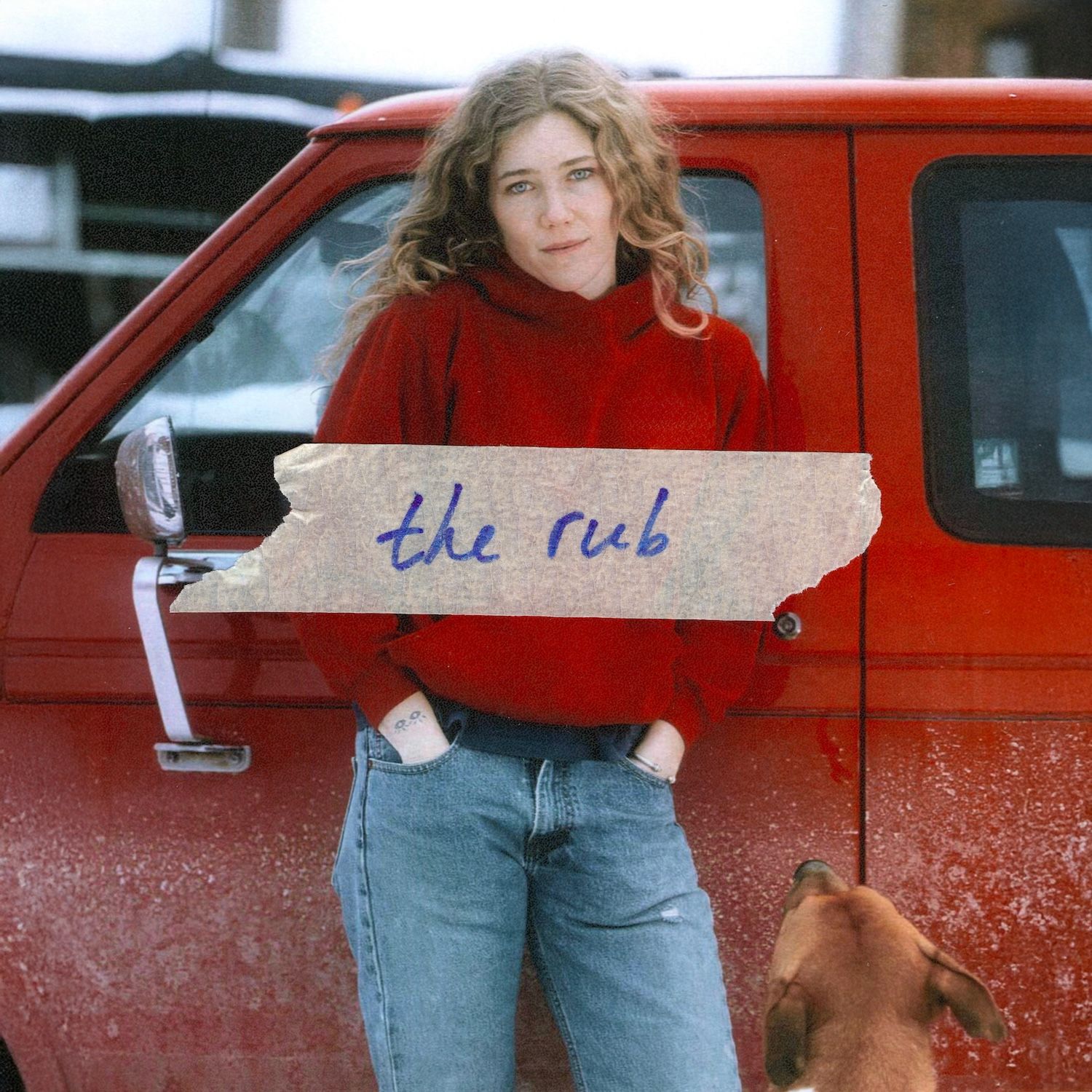There’s a unique kind of intimacy in JP Saxe’s music — one that doesn’t just invite you in, but quietly asks you to sit down and stay a while. Known for the emotional precision of his lyrics and the sincerity that floods every piano chord and vocal take, Saxe’s new body of work opens a vulnerable, complex chapter in his artistry. With the release of the first installment of his latest project — and another on the way this June — Saxe is exploring territory that feels braver, messier, and perhaps more revealing than ever before.
“My favourite art has always been the kind that artists made out of the parts of themselves that scared them a little bit,” he tells us. “That’s the new territory this particular project has entered.” It’s a project that doesn’t flinch from discomfort — whether it’s confronting grief, masculinity, disconnection, or shame — and yet it still pulses with warmth, humour, and the kind of poetic honesty that made fans fall in love with him in the first place.
Since his global breakout “If the World Was Ending”, Saxe has established himself not just as a balladeer of heartbreak but as a chronicler of what it means to feel deeply in a distracted, demanding world. But now, he’s stepping beyond the lens of love songs to ask a bigger question: Who am I when I’m not trying to be anything for anyone else? “There’s a lot of me in my early music—but it was almost always in the context of a relationship,” he reflects. “I’m excited to introduce myself in this music as more than just an ex-boyfriend.”
And he’s not doing it alone. Collaboration is at the core of this new chapter—from poetic partnerships with Jessica Salgado to co-writing melodies with the likes of Mickey Echo and Steph Jones. “It’s about taking the ego out of it,” he says. “Music is a team sport, whether you’re a solo artist or a band.”
1883 catches up with JP Saxe to discuss Articulate Excuses, his upcoming work, and more.
Your songwriting has always felt incredibly raw and intimate, almost like we are reading some pages from your journal, I guess. Has your relationship with vulnerability in music changed since “If the World Was Ending”?
Firstly, I appreciate you taking the time to ask these questions about the music. It means a lot to have anyone interested enough in the art to have follow-up questions. Regarding vulnerability in the music, I think my favourite art has always been the kind that artists made out of the parts of themselves that scared them a little bit.
I think the way my approach to that has progressed since my early albums—or my first album—was that I used to lean into the emotions I was either trying to figure out because they were confusing, like heartbreak or missing someone or loving someone more than you knew what to do with. And with my early work, like album one, I was really concerned with the identity that the art would give me. It felt like where I was starting. It was really important to me that the voice and perspective I used in those songs felt grounded in the kind of person and artist I wanted to be.
Now, because I feel like I’ve established a little bit of a foundation to my art, I can explore elements of myself in this art that aren’t necessarily the kind of person I want to be. And to me, that’s in many ways a lot more exciting. You know, it’s one thing to explore the parts of yourself that you take pride in—like, for me, emotional analysis and hyper-intellectualizing my feelings.
It’s another thing to explore, in your art, the parts of yourself that you have some shame in. I would say that’s the new territory this particular project has entered.
It sounds quite sincere, actually.
Thank you. Sincerity is what we’re going for.
A Grey Area marked such a confident evolution in your sound and storytelling. Was there a particular lyric or track on that album that felt like a personal turning point for you?
That’s a good question. A couple of things come to mind. The very first track—I love the first song on A Grey Area because it’s the first time I’ve put a lyric on an album that I didn’t write. It was a poem written by my friend, the really iconic poet Jessica Salgado, who I deeply admire. She had this poem, “Old Time’s Sake,” which I had always loved. It summarized some of the feelings and themes I was exploring on A Grey Area.
So, in the same way that an author will give their book an epigraph by someone else, I liked giving my album that. It felt like new territory because I was prioritizing the theme and emotion of the project more than just my own ability to convey it.
I continued that process throughout the album, allowing other people’s capabilities and art to serve the broader theme. There are songs on this album where I didn’t write any of the melodies; I just wrote a poem. Then I took that poem to one of my favourite songwriters and asked them to create the melody. It’s about taking the ego of “I have to do everything” out of it and saying, “I am blessed with an incredible community of talented musicians and writers.”
If I have an idea for what I want the art to express, I can work with that team to do it in the most effective, powerful way — regardless of if it all comes from my own mind.
Yeah, it sounds amazing to create that space—to collaborate with a poet friend, too.
It’s a lot of fun. You know, music is a team sport, whether you’re a solo artist or a band. So, for example, “I Want to Move to Brooklyn”—that was a lyric I’d written. I didn’t have the melodies. It was mostly Mickey Echo taking my lyrics and writing the melody to them. I was kind of trying to be my own Bernie Taupin, doing it in reverse.
Then for “Soft Ass Bitch,” one of my favorite songs on part one of this project, I wrote the lyrics, and Steph Jones wrote basically all of that melody—another amazing songwriter.
You’ve also shared the stage with John Mayer and collaborated with Maren Morris — artists with very different energies. What have you taken from those creative exchanges that shaped your own voice?
I love working with artists whom I’m a fan of, and even more when they’re my friends. Every collaboration has come about in its own way. John Mayer—I had connected with him years ago because I had heard from a couple of friends that he’d been saying nice things about my songs. And when you hear through the grapevine that your favourite songwriter and artist of all time has been making passing, friendly comments about your songs — you do everything you can to connect with them.
John and I, it’s been a while now. When we first connected, I was making Dangerous Levels of Introspection, my first album. I invited him into the studio to hear it. He brought his guitar and played a solo on a song called “Here’s Hoping” on my first album. Then that evolved into him helping me write a song called “I Don’t Miss You,” which was on my second album.
The next step of that evolution — of him really looking out for me in my career and being a dream music industry big brother — was bringing me on his solo tour. It was such a unique experience as a performer. Being in an arena, on stage by yourself as an opener, happens sometimes. But a headliner playing solo in an arena? That’s so unique. For me to be opening for my favourite artist, having the same tools he did on stage, made it really a once-in-a-lifetime show. I’m grateful I gotta do it about 25 times. And I think everyone who came to those shows had a very unique experience — seeing songs they loved performed so rawly.
I want to ask about the tour in 2024—how has performing live changed your understanding of your songs?
You know, it feels like the reward of all of this. I love making music, I love creating, but there’s nothing quite like the elation of standing on a stage and singing stuff that came from often difficult moments of your life—along with thousands of people in a place you’ve never really been. I’ve yet to experience a better reminder of our interconnection as people than that particular experience. I can’t wait to do it again. We’re touring again this fall, and I think about it all the time, because that’s when it becomes real.
I can make a song, record a song, listen back to it—even today, you know, the album, or at least the first seven songs from this project, they’re out today, and people are having whatever experience they’re having. But I don’t really get to know about it. Maybe they send a DM, maybe they don’t. Most of my fans are pretty introverted, so I imagine the vast majority of people’s experiences with my music happen separately from me, and I’ll never know about it. I’m okay with that. But those moments on stage — like the last tour I went to Kuala Lumpur and Taipei and a lot of places I’d never been before—being there and seeing people have their relationship with this music, and then getting to look in their eyes as they sing along with me? I’ve yet to find anything that matches that feeling.
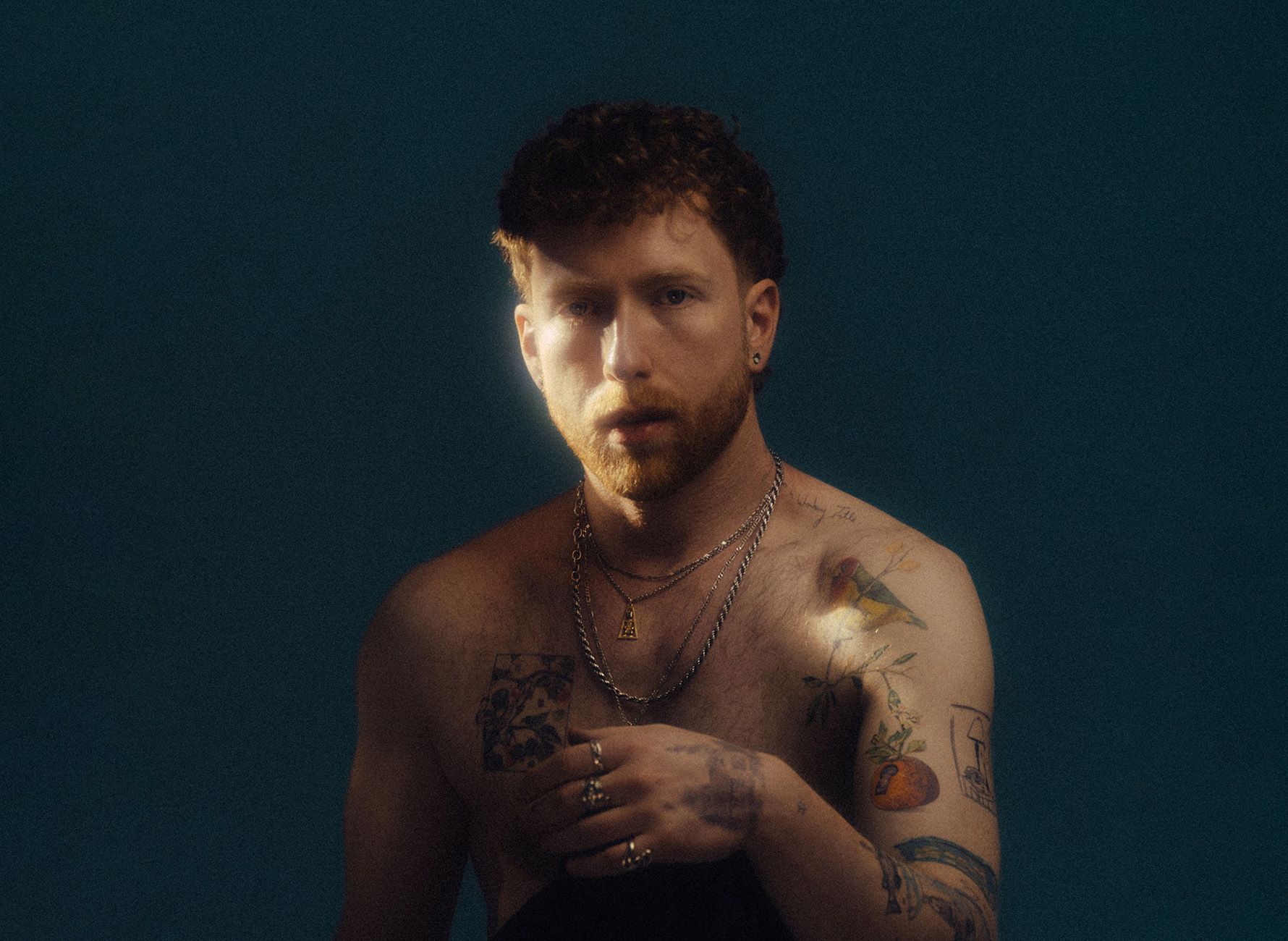
Also, when I listen to your music, I feel like there’s a tension, a beautiful tension, between melancholy and playfulness at the same time. Is that balance something you consciously aim for, or does it come naturally when you’re writing?
Yeah. I think as a person, I have a very bad habit of undercutting my emotional experiences with humour. If something feels a little too intense, a little too painful, a little too real, my instinct is to make a joke — to ease the weight of feeling it fully. I don’t think that’s necessarily a good thing, but it’s a real thing. And that habit has seeped its way into my songwriting.
If something feels particularly intense or painful, I’ll interject some humour or silliness. I have mixed feelings about the fact that I did that on this album. Part of me thinks because that’s something I do — and something a lot of my friends do — that people will see themselves in that. Because I imagine a lot of people who listen to my music also share the habit of interjecting humour into the emotional moments they find painful. There’s something very human about that. Maybe that adds an element of connectivity that people will find in the songs.
I also think I’d like to do that less as a person. I think it’s nice to allow yourself to sit in an uncomfortable emotion and not feel the need to joke your way out of it. Maybe on future projects, my growth as a person and as an artist will mean allowing the sincerity of the discomfort to live in the songs, and not always feeling the need to be silly about it.
I would say the best example of this on the current project is “Soft Ass Bitch.” That’s a song about me navigating masculinity and grief, and how all my concepts of masculinity, internalized over 32 years of living in a patriarchal society, make it hard for me to grieve in a healthy way.
Healthy grieving often means transparency with the people you love. It means allowing yourself to be a mess. It means allowing yourself to feel something fully. But when you’ve associated strength with stoicism—and with the ability to numb your emotions, rather than move through them—it becomes hard to grieve in a healthy way. And that’s something I believe is an important conversation. So I have a song about it—but there’s also humor there, like naming the song “Soft Ass Bitch,” which I have mixed feelings about. Because it’s also true: the barrier to me navigating my own grief is that I look at myself judgmentally and call myself disparaging names when I’m trying to feel something real. So, like always, the songs are not suggestions or solutions. The songs are attempts at accurate depictions of the ways I’m getting things wrong.
No, I get it. Maybe it explains why your lyrics often blur the line between the poetic and the conversational. Can I say that? From that, do you start a song from a melody, a phrase, a feeling, or does it change every time? I think your last answer maybe explains it a bit, but still.
I start with lyrics, always. They usually start with a lyric. Or an idea. I don’t think I’ve ever released a song that started with a melody. To me, melodies are a tool to colour in the lyrics.
With your next chapter of music arriving in 2025, what themes or emotions are guiding you now that maybe didn’t feel as present in your earlier work? Is there something different now?
I would say the two main differences between the two albums I’m putting out this year — the first one, which came out today, and the second one, which comes out in June — are: A lot of my first music was me presenting myself as who I was in a relationship. Lots of heartbreak songs, and there’s a lot of me in those songs, but it was almost always in the context of a relationship. I’m excited to introduce myself in this music as more than just an ex-boyfriend.
One of the prompts I gave myself at the beginning of this album was: “Who am I without who I’m trying to be for someone else?” That was kind of the preliminary question at the beginning of this album writing process. Who am I without who I’m trying to be for my society? Who am I without who I’m trying to be for a partner? Who am I without who I’m trying to be for a concept of masculinity? Who am I without who I’m trying to be for a version of myself I thought I should be 10 years ago, but isn’t really relevant anymore?
Sounds right.
Yeah, every song in some way explores an element of that question. So there’s always an evolution, unavoidably.
Now, what does success feel like to you today, as someone who’s gone from a songwriter to a global headliner? Has your definition shifted over time?
I have two answers for you on that, and they’re both true. I am every day baffled by the fact that I have built a life out of songs. It is fucking absurd to me that my job is music. I feel extraordinarily lucky that I don’t have to make money with anything other than songs. That’s just crazy to me—truly, like a fucking insane privilege. I’m also still extremely ambitious. I want everyone on earth who could resonate with my music to hear it. I don’t want an audience so badly that I would ever change my music to find it—but as big as an audience could possibly be for the exact music that I want to make, I would like to reach them. And I think that’s a lot more people than have heard it already. I feel very driven to reach those people with my music.
But my ambition has changed even in how it’s rooted. When I was 20 years old, my ambition came from my desire to, in many ways, escape the version of life that I was living. When I was sleeping in my car and had no money and didn’t have a home to go back to in Toronto, my ambition was: “Well, I can’t keep living like this. I have to fucking make it happen.” There was dissatisfaction with what my life was, and that dissatisfaction provided a lot of fuel for my ambition. I am not dissatisfied with my life anymore. I actually really love my life.
I’m very grateful for my life, but I’m still very ambitious. It’s been a process to learn that: without the dissatisfaction that fueled your ambition early in your career, how do you maintain that same ambition? For me, I found it in my love of the art itself, and my belief in the value of the art itself. Also in the opportunity to use my voice for shit that I care about. The more people who listen to my music, the more people who listen to what I have to say. I believe in what I have to say, so I’d like to say it to as many people as possible.
Also, as we mentioned before, you want your music to feel like a conversation. In an age now of noise and distraction, how do you stay tuned into your own emotional frequency enough to write that honestly?
Sometimes honesty is the disconnection. I don’t think an artist’s role is to be somehow elevated from their society to speak from some higher place of understanding. I don’t think that’s what we’re supposed to do. I think an artist’s role is to have an experience that looks a hell of a lot like everyone around them, and the only difference is that we reflect that experience in our art. The disconnection is rampant. And I speak about that disconnection on this album because I am as immersed in it as everyone around me. Our phones are trying to kill us. They are actively commodifying our attention at the expense of our ability to feel joy.
Interview Alper Kurtel

